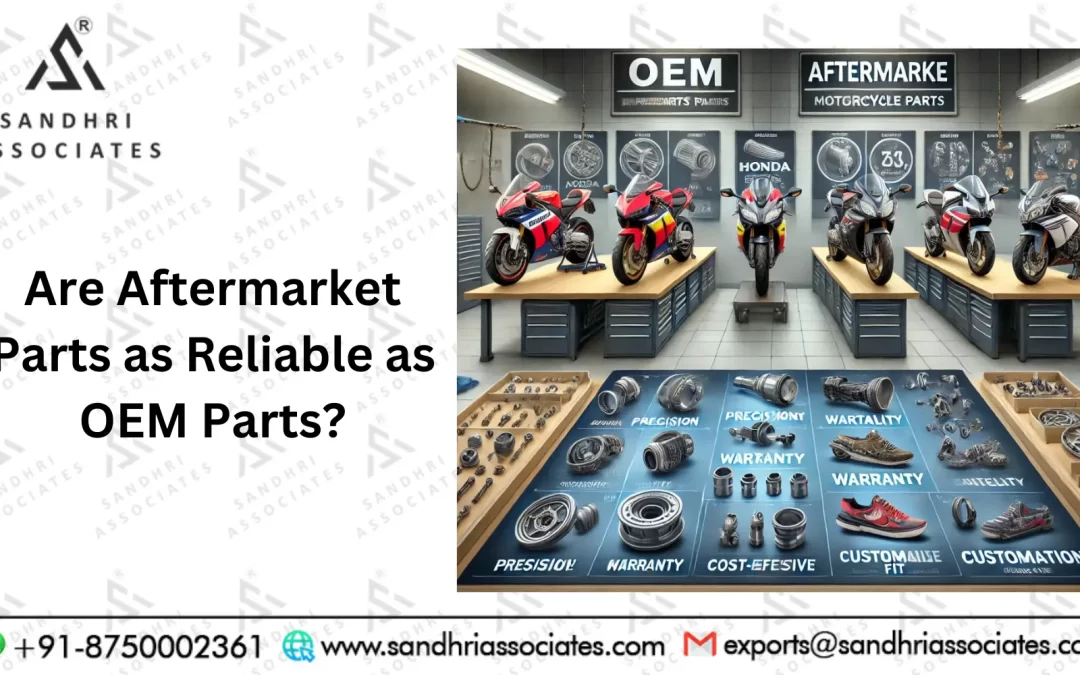Are Aftermarket Parts as Reliable as OEM Parts?
When it comes to repairing or upgrading your vehicle, choosing the right parts can be daunting. One common question many car owners face is whether aftermarket parts are as reliable as Original Equipment Manufacturer (OEM) parts. Understanding the differences between these two options can help you make an informed decision.
What Are OEM Parts?
OEM parts are produced by the vehicle’s manufacturer or an authorized partner. These parts are identical to the components that originally came with your car.
Key Features of OEM Parts:
- Designed to match your vehicle’s specifications.
- Often come with a manufacturer’s warranty.
- Higher price tag compared to aftermarket alternatives.
What Are Aftermarket Parts?
Aftermarket parts are made by third-party companies and are not associated with the vehicle manufacturer. These parts are often designed to fit multiple makes and models, making them a versatile choice.
Key Features of Aftermarket Parts:
- Widely available and often less expensive.
- Can offer performance enhancements or unique features.
- Quality can vary significantly depending on the manufacturer.
Reliability: Comparing Aftermarket and OEM Parts
The reliability of a part depends on several factors, including its purpose, the brand, and how it is manufactured. Let’s explore key considerations:
Quality Control
- OEM parts undergo rigorous testing to meet manufacturer standards.
- High-quality aftermarket parts can rival OEM reliability, but lower-tier options may lack proper testing.
Durability
- OEM parts are engineered to last as long as the original component.
- Some aftermarket parts exceed OEM standards, while others may wear out faster.
Compatibility
- OEM parts are guaranteed to fit seamlessly.
- While many aftermarket parts fit perfectly, there’s a risk of compatibility issues, especially with lesser-known brands.
Pros and Cons
OEM Parts
Pros:
- Guaranteed fit and quality.
- Backed by warranties.
Cons:
- Expensive.
- Limited customization options.
Aftermarket Parts
Pros:
- Cost-effective.
- Diverse options for customization and performance.
Cons:
- Quality can vary widely.
- May void vehicle warranties if not compatible.
How to Ensure Aftermarket Reliability
If you decide on aftermarket parts, consider these tips:
- Research Reputable Brands: Look for reviews and recommendations.
- Compare Warranties: Opt for brands that back their products.
- Consult Professionals: Seek advice from mechanics or auto experts.
Conclusion
Are aftermarket parts as reliable as OEM parts? The answer largely depends on the specific part and manufacturer. High-quality aftermarket parts can be just as reliable, if not better, than OEM components. However, OEM parts remain the safest choice for guaranteed compatibility and performance. Weigh the pros and cons based on your priorities, budget, and vehicle needs to make the best decision.
FAQs
1. Do aftermarket parts void my car’s warranty?
Some aftermarket parts may void the warranty if they lead to damage or are not compatible.
2. Are all aftermarket parts cheaper than OEM?
Not always. Premium aftermarket brands can sometimes be more expensive.
3. Can aftermarket parts improve performance?
Yes, many aftermarket parts are designed for enhanced performance, such as exhaust systems or air intakes.
4. How do I identify high-quality aftermarket parts?
Look for certifications, warranties, and reviews from trusted sources.
5. Should I consult a mechanic before buying aftermarket parts?
Absolutely. A professional can help ensure the part is suitable and reliable for your vehicle.

